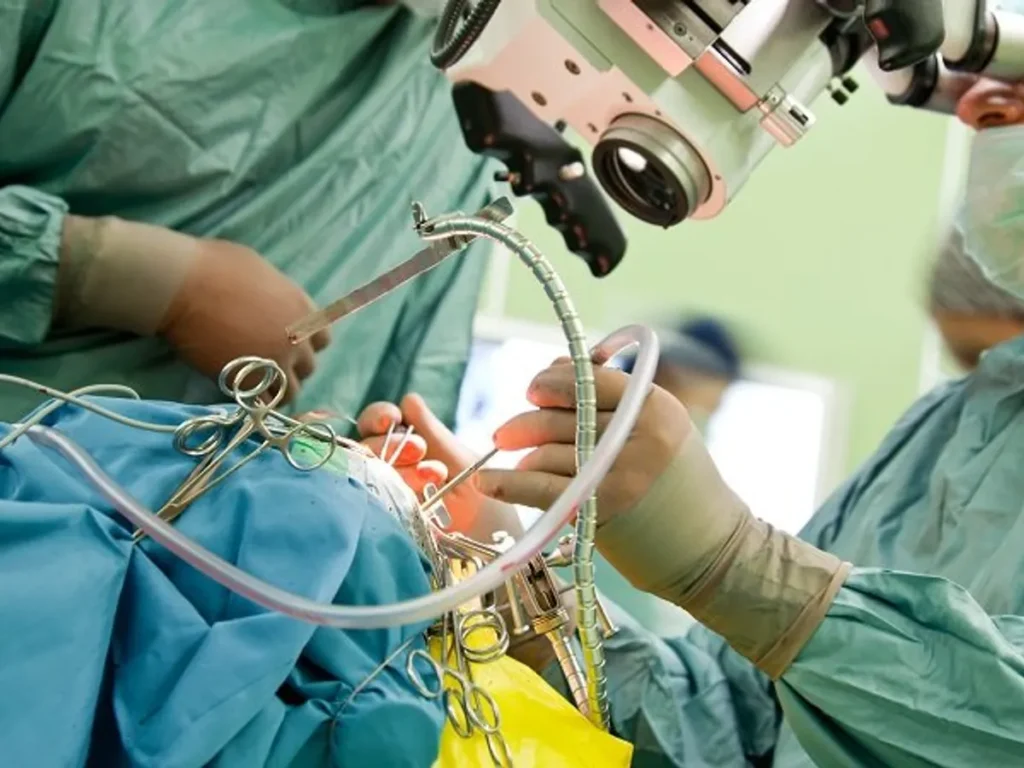Navigation Assisted Brain Surgery
Home : : Services : : Navigation Assisted Brain Surgery
What is Navigation Assisted Brain Surgery?
A computer-assisted neurosurgical navigational system has been developed which displays intraoperative manipulation on the preoperative computerized tomography (CT) scans or magnetic resonance (MR) images. The system consists of a three-dimensional digitizer, a personal computer, and an image-processing unit. Utilizing recently developed magnetic field modulation technology, the three-dimensional digitizer determines the spatial position and orientation angles of the resin probe, triangle-shaped pointer, or suction tube with a small attached magnetic field sensor. Four fiducial markers on the scalp were used to translate the spatial data of the probe onto the preoperative CT scans or MR images of the patient. With this frameless, armless navigational system, CT or MR-imaging stereotaxy can be applied to conventional open neurosurgery without limiting the operative field or interfering with the surgical procedures.

Navigation for neurosurgery
The various applications of navigation for neurosurgery, or “neuronavigation,” have been widely reported and published for almost two decades. Neurosurgery was the first surgical discipline to adopt navigation and integrate it successfully in clinical routine. The neurosurgical procedures supported by neuronavigation range widely from intracranial tumor resections to frameless biopsies to pedicle screw placement and stabilizations in the spine. Below is an overview of the main benefits and challenges of neuronavigation in general.
Minimally invasive surgery
Neuronavigation displays anatomical structures along a tracked instrument’s virtually axis, and in the majority of neurosurgical interventions, this information is used to optimize the craniotomy, e.g., skull opening. Neuronavigation helps to visualize the location of underlying tumor borders in relation to the skull and resulting in shorter surgical operation time and smaller craniotomies. Smaller and better-centered craniotomies are associated with reduced blood loss, minimized trauma, and brain retraction. This reduces the risk of postoperative swelling and/or hematomas, and this results in shorter hospitalization of the patient and decreased hospital costs [2–4]. For spinal surgery, neuronavigation enables minimal invasive percutaneous procedures and leads to less pedicle breaches and significant reduction of radiation for the surgeon
We Provide the Best Treatement
Book your appointment with Dr. Chandrashekar Raman is a distinguished Brain Spine Surgeon in Magarpatta and Neurosurgeon in Pune.
